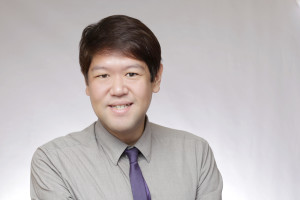Alumni Q&A / Ed Meng MUP ’14
Hometown: San Diego, CA
Current City: San Francisco, CA
Current Position: Senior Program Coordinator, Metropolitan Transportation Commission (San Francisco Bay Area)
Other Degrees: B.A., Mathematics, UC Berkeley
1. What was your work experience/background before coming to the GSD?
Before coming to the GSD, I mainly worked in consulting. My first job was as an actuarial consultant in the healthcare industry. I then moved to more traditional management consulting, and a number of my clients were transportation agencies.
2. What made you decide to pursue planning as a career?
I have always viewed transportation planning and transit as blending three areas that I find most important – the environment, the economy, and social equity. Public transportation is often used by those with less means to go to and from jobs, so there needs to be a major social equity focus when planning transportation systems.
3. Why did you choose the GSD?
I got into Harvard, Columbia, Berkeley, and UCLA, but I chose the GSD because of the ability to take classes at a number of different schools. I was excited about the Kennedy School, which focuses on policy, MIT, where there is an emphasis on infrastructure and engineering, and then, of course, the GSD, which deals with design. That variety was one of the biggest factors to me. I ended up taking classes at MIT, HKS, and the Business School, in addition to the GSD.
Also, I went to UC Berkeley for undergrad, so I wanted to spend time on the East Coast and take advantage of the vast Harvard network. In addition, I learned that Harvard pretty much founded the Urban Planning field, so how could I go wrong?
4. What areas in planning interest you the most and how are you addressing them in your career?
I think transportation can be the great equalizer. Cities cannot be what they are if the transportation infrastructure cannot support it. In cities, productivity plummets if public transportation shuts down. A strong economy also means that you can better allocate public benefits to those in need. I am also dedicated to getting people out of their cars and off the road.
In my current role, I work on the regional fare collection system. You can use the Clipper card on 23 different transit agencies in the Bay Area, and there is a strong need as the MPO to interact with each of them to ensure that the system runs smoothly. This is challenging because the municipalities range from being extremely dense and urban like San Francisco and Oakland to agricultural in Napa and Sonoma County, or suburban in nature like Silicon Valley, so there is a lot of variation in service and need.
5. Can you summarize the path you have taken since graduation that has led to your current position and how the GSD prepared you for it?
My first job outside of the GSD was a fellowship to help plan a transportation network in Saudi Arabia. Saudi Arabia is building a high-speed rail line between Mecca and Medina, the two holy cities of Islam, and one of the stops on the new line will be in a new city, King Abdullah Economic City. The two other fellows and I worked on one group project focused on how to activate strategic sites to create a sense of community in this new city. I also completed an individual project on how to implement the transportation plan. For the fellowship, we wanted to engage the community, so the experience doing direct community engagement work in studio courses at the GSD was incredibly helpful.
I often think of the skills I learned and how I can apply them to my current job. For instance, at the time that the interstate system was planned, planners were using the tools of government to build infrastructure that did not necessarily distribute benefits equitably. My agency currently develops a long-range regional plan that considers where to invest in infrastructure, where we can connect housing across dense corridors and near jobs, and how to accommodate a growing population sustainably and equitably. We constantly ask how to address these issues environmentally and economically and work to provide a high quality of life for everyone. In this position, I deal with a variety of governance structures, so I have to understand how resources are allocated and how best to leverage those resources to achieve our goals.
I also hold regular public meetings, so I create materials to distribute to the public, board members, and other stakeholders. I learned that at the GSD.
6. What’s your favorite memory of the GSD?
Our class really came together during our time at the GSD. We were students during the Boston Marathon bombing, and it was a scary time, and I think that we grew together as a community as result. Right now, there are about six to seven people from my class in San Francisco, and we get together once a month for a book club.
